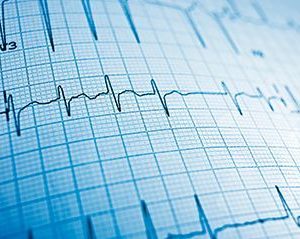- Recognizing the Signs of Hypothyroidism
- 10 Strategies to Overcome Insomnia
- Could Artificial Sweeteners Be Aging the Brain Faster?
- Techniques for Soothing Your Nervous System
- Does the Water in Your House Smell Funny? Here’s Why
- Can a Daily Dose of Apple Cider Vinegar Actually Aid Weight Loss?
- 6 Health Beverages That Can Actually Spike Your Blood Sugar
- Treatment Options for Social Anxiety Disorder
- Understanding the Connection Between Anxiety and Depression
- How Daily Prunes Can Influence Cholesterol and Inflammation
Women More Prone to Nighttime Cardiac Arrest Than Men

Going into cardiac arrest at night can be particularly deadly, and now new research suggests that it might strike women more than men.
Sudden cardiac arrest is an electrical malfunction that causes the heart to stop beating. The survival rate for out-of-hospital cardiac arrest is only 10%, the researchers said.
“Dying suddenly during nighttime hours is a perplexing and devastating phenomenon,” said senior study author Dr. Sumeet Chugh. He is director of the Center for Cardiac Arrest Prevention at Cedars-Sinai Smidt Heart Institute, in Los Angeles.
“We were surprised to discover that being female is an independent predictor of these events,” Chugh said.
Between 17% and 41% of the estimated 350,000 sudden cardiac arrests in the United States each year occur between 10 p.m. and 6 a.m. For the study, the researchers analyzed data on more than 3,200 daytime cases of sudden cardiac arrest and 918 nighttime cases.
The investigators found that just over 25% of cases involving women occurred at night, compared with nearly 21% of cases involving men, according to the study published online Jan. 19 in the journal Heart Rhythm.
More research is needed to learn about the reasons for women’s increased risk, but a respiratory component might play a role, the study authors said.
The findings showed that lung disease was much more common in people who had nighttime cardiac arrests than in those who had daytime cardiac arrests. Those who had nighttime cardiac arrests were also more likely to be current or previous smokers.
“The prevalence of chronic obstructive lung disease and asthma were found to be significantly higher in sudden cardiac arrest cases at night compared with daytime cases, regardless of gender,” Chugh said in a Cedars-Sinai news release.
“Brain-affecting medications [including sedatives and painkillers], some of which have the potential to suppress breathing, were also found to have a significantly greater usage in nighttime compared to daytime cardiac arrest,” he added.
That suggests that doctors may need to be cautious when prescribing sedatives, and pain and depression drugs to high-risk patients, especially women, the study team noted.
More information
The U.S. National Heart, Lung, and Blood Institute has more on sudden cardiac arrest.
SOURCE: Cedars-Sinai Medical Center, news release, Jan. 20, 2021
Source: HealthDay
Copyright © 2026 HealthDay. All rights reserved.










